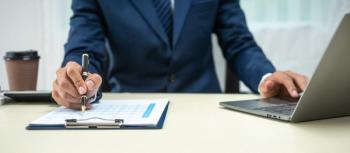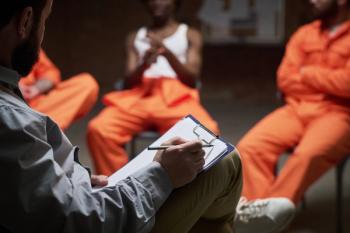
What Are Best Practices for Psychiatrists When Serving As Expert Witnesses?
An expert shares 7 tips for effectively serving as an expert witness in court.
QUICK CONSULT
Although a “fact witness” is constrained to testify only to what was observed by the 5 senses, the “expert witness” is permitted to draw inferences and conclusions from other sources—hospital records, other experts’ examinations, basic principles, and so on.
In a given context, a fact witness may testify, “I saw the defendant run through a red light,” whereas an expert might testify, “This doctor’s treatment of the plaintiff fell below the standard of care of the average prudent physician, causing the damage described.” The expert serves as a consultant to the court and offers opinions on subject matters that are beyond the scope of knowledge of the jury.
The single most important point is first to understand—and accept—that the courtroom is not a clinical space. Your efforts are not for a patient’s well-being, but to inform the court by providing an opinion, usually about an examinee; the latter may be harmed by your testimony, but you are held to the truth, come what may. This expert role requires you to abide by courtroom rules, especially the Socratic model of question and answer. One cannot give speeches or digress from the point of the question asked.
Moreover, experts should refrain from making comments about individuals in the courtroom. It is fine to ask that a question you did not understand be repeated, but one should not tell the cross-examining attorney, “You are just trying to trap me.”
Second, you will be under oath, which means that false statements make you vulnerable to a charge of perjury—a very serious matter.
Third, experts must not only know the case cold, but also be prepared to meet challenges to the provided opinion, in the form of cross-examination, the latter of which is aimed at impeaching the expert’s testimony and weakening the expert’s credibility. Because every case has 2 sides, testifying experts should not take impeachment efforts personally but should realize that the adversarial structure of the law requires both sides being addressed and tested.
Fourth, be sure to wait until the question is completely finished, because the end of the question may be a “twist.” Pause and think about your answer. “I do not know” and “I do not recall” are perfectly valid responses when appropriate.
Fifth, during your testimony, the opposing lawyer may object; allowing this is another good reason to pause before answering. The objection, based on a legal principle that may not be apparent to you, usually allows you to answer. The judge will either sustain the objection, which means the question may need to be repeated or rephrased, or overrule the objection, which means you will be allowed to answer. If you are in doubt, ask the judge, whom you address as “Your Honor.”
At a later point, the court will decide what to do with the testimony that drew the objection; the possibilities are that your testimony, in whole or in part, will be accepted as evidence or excluded for various reasons. None of this is your problem.
Sixth, turn off your cell phone before taking the stand. Judges can get annoyed at your phone going off mid-testimony, as this may seem to place your importance over the judge’s.
Seventh, after the court dismisses you, that is the end of your testimony (“You may step down, doctor”). Gather your materials, if you have brought any to the witness stand; be sure to leave official marked exhibits behind; and leave—do not try to get in a last word.
One of the great and inescapable disappointments of testifying is that you may not be able to get your point across or to present your full opinion because of sustained objections or lawyer shenanigans. Swallow the bitterness, and accept that the system is not in your control. A great scholar once noted, “The expert witness is a hood ornament on the vehicle of litigation, not the engine.”
Note as a general point that the majority of these suggestions also apply to the deposition, an examination under oath pretrial as a part of “discovery” in which attorneys and a stenographer are present without a judge. The objections will be made part of the paper record, and a judge will later similarly decide whether to accept or exclude the materials that drew objection.
Note as another general point that observing testimony or acquainting yourself with some of the literature on testifying may be well worth the time and effort before you testify.
Dr Gutheil is a professor of psychiatry and cofounder of the Program in Psychiatry and Law, Beth Israel Deaconess Medical Center Department of Psychiatry at Harvard Medical School in Boston, Massachusetts. He is the first professor of psychiatry in the history of Harvard Medical School to be board certified in both clinical and forensic psychiatry. An internationally known forensic psychiatrist and author of over 300 publications in the national and international clinical and forensic literature, Gutheil has served as a consulting or expert witness in more than 40 states.
The recipient of every major award in the forensic field and multiple teaching and writing awards, he is also the recipient of the 2000 A. Clifford Barger Lifetime Achievement in Mentoring Award, Harvard Medical School. Gutheil lives and works in the Boston area.
Newsletter
Receive trusted psychiatric news, expert analysis, and clinical insights — subscribe today to support your practice and your patients.







